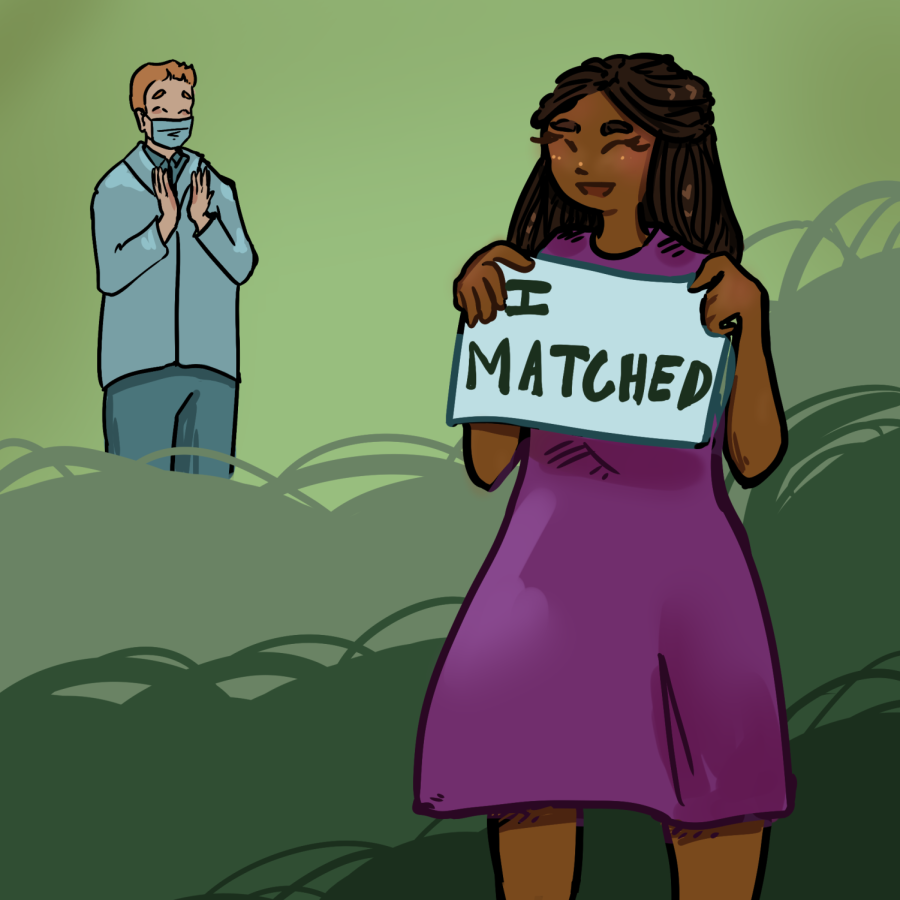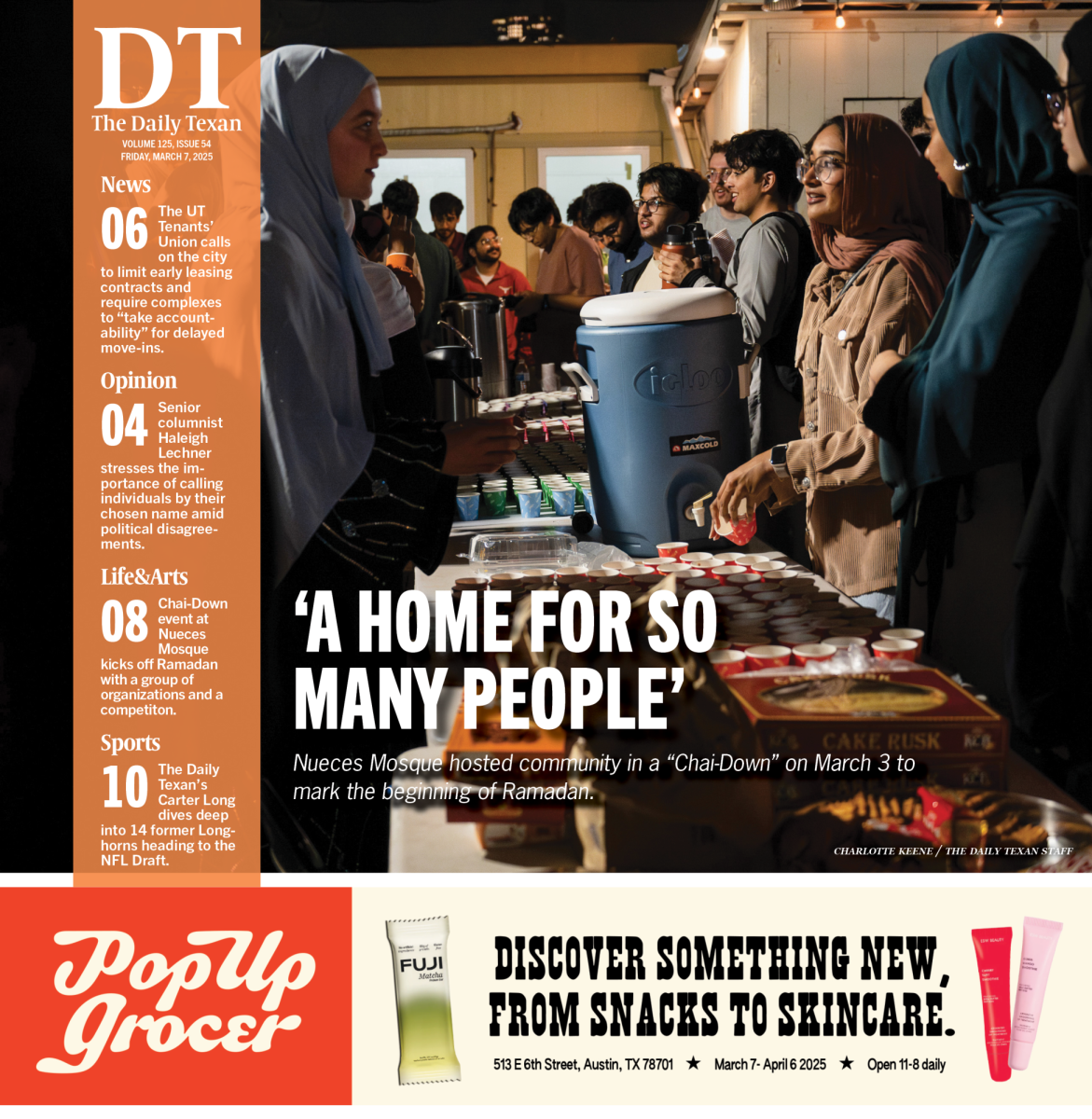Match Day 2023 dictates futures of Dell Med students, students across US
March 29, 2023
After a sleepless night, Darsh Shah, fourth-year Dell Medical School student, opened his laptop to an email that could potentially change the trajectory of his career in medicine. Thankfully, the message “Congratulations, you have matched!” beamed brightly on the screen.
“This is what you worked for,” Shah said. “And you’re excited that you get to do what you want to do. It (also) comes with a little bit of bittersweetness about having to leave something behind, and maybe even a little (nervousness) of the next challenge ahead.”
Medical residency is a three- to seven-year specialty-specific training program that all physicians must complete to become independently practicing attending physicians. During the third week of March each year, the National Resident Matching Program matches every fourth year MD candidate registered in the Main Residency Match system.
The 2023 Match boasted the largest pool of applicants in history, with 42,952 students and 40,375 available positions further subdivided by specialty. Though matched to one of the 243 open neurosurgery positions, Shah waited another four days after the Match Day ceremony to find out where he would spend the next seven years. On that day, in front of their peers, mentors and families, all matched Dell Med students opened a letter holding the name of their next institution.
Resident matching utilizes a Nobel prize-winning algorithm that considers the preferences of both candidates and institutions. Shah and his fiancee, also a fourth-year medical student, “couples” matched, allowing their institution preferences to be linked. Despite couples matching, they still were assigned separate institutions.
“There are intelligent, curious people to work with no matter where I go,” Shah said. “When you decide to be a (doctor), you (don’t) say, ‘I want to train here or train there.’”
Out of 44 students in Dell Med’s class of 2023, 43 matched into a residency program. Eligible unmatched candidates receive an offer from the Supplemental Offer and Acceptance Program (SOAP), where unmatched applicants can apply for unfilled positions, often outside of their specialty of choice. However, some candidates, like Dell Med student Cole Martin, opt to wait to apply for the next match cycle instead of participating in SOAP.
“Ophthalmology has always been my dream, sort of (an) identity, and I’m not ready to give up on it just yet,” Martin said. “I’m going to apply one more time.”
Shah said match day could be much more complicated than it may seem on social media. However, the pervasive match day TikTok has found an audience among undergraduate pre-med students. Students like biochemistry sophomore Brenda Tu see it as a glimpse into the future.
“I feel the excitement toward the end whenever they (match),” Tu said. “They’ve worked really hard, and it really shows in a physical form. That’s the part that I’m working toward, and it’s keeping me going daily.”












